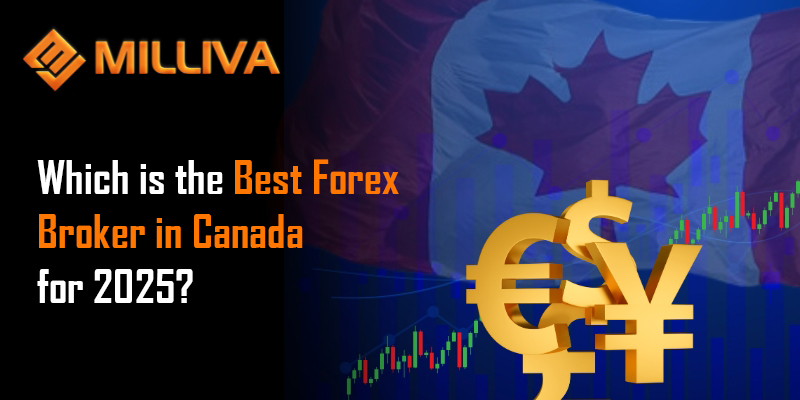Basics of Forex Trading Psychology

![]()
Forex Trading psychology is an essential component in trading stocks, Forex, or nearly any other security. In reality, it is just as important for a good deal as trading abilities and knowledge or current market circumstances.
Trading psychology refers to a trader’s attitude and how they manage their emotions, thought processes, and trading judgments. Trading psychology holds that traders have a better chance of earning large returns. Or at least not losing too much money, if they stay sensible at all times and do not succumb to greed or fear.
Even while psychological impulses subjective and unique to each trader, there are certain common elements that impact how individuals trade. Among these triggers are:
1.Fear
2.Anger
3.Impatience
4.Greed
When a trader feels fearful, they feel driven to sell all of their trading funds rather than take fresh positions. Which might cause them to miss out on a great chance. Though they enraged after a loss, they tend to make impulsive judgments and initiate additional trades even. When the market is plainly against them.
When it comes to impatience and greed. Traders who gripped by these emotions typically seek to receive rewards promptly or in huge amounts. They don’t want to take small steps toward achievement; they want to attain it all at once, which frequently leads to their doom.
Traders must practice their psychological responses to various scenarios. Just as they practice their trading abilities, in order to overcome fear and fury. As well as control impatience and greed. This manner, people will not be overwhelmed whether the market responds favorably or unfavorably.
Why is a Forex Trading Psychology Important?
When trading in a financial market, whether it’s Forex, stocks, commodities, or anything else. Traders must have a certain skill set that allows them to reduce potential losses while increasing future profits. In this regard, having considerable trading knowledge and expertise, as well as consistently monitoring market changes, is critical.
However, the significance of trading psychology should not be overlooked. Traders deal with different market changes emotionally can have a big impact on the success of their trading positions.
Even if they know everything. To know about trading terminologies tactics and strategies, and stay up to speed on market movements on a regular basis. The risks of severe losses remain considerable.
Possessing excellent trading psychology. Can improve their odds of receiving greater rewards .Or at the very least, lessen the effect of losses. This is especially significant since, on many instances. Traders must make rapid judgments about starting or closing a position or adjusting it. And having a certain presence of mind may help them make more conscious decisions.
There are several psychological variables that influence trader’s judgments nowadays. In truth, they are very subjective, with varied reactions from various traders. Trading psychologists, on the other hand, identify some of the more general cues that seem to appear across the board. We will look at four of these stimuli in particular:
Fear
when there is a sudden market event. Such as a stock market fall, and all they can think about is liquidating funds and saving the cash.
Anger
when they lose a trade and are so enraged that they can’t stop opening fresh positions.
Impatience
When they trade but the real rewards are so small that they can’t help but go big. Make enormous deposits and start even larger positions.
Greed occurs when individuals obtain a payoff on a trade. That entices them to the point where they cannot stop establishing new positions.
All of these Forex trading psychology cues contribute to trader’s worsening of their perspective. About what is really going on in the market. Let’s take a closer look at each of them and see how they present themselves in trading.
These answers will be classified based on their psychological characteristics:
Fear and Anger are more negative in the sense that the outside world has bigger impact on a person. But impatience and greed are more positive that a person is attempting to increase their influence on the outside world.
Forex Trading Psychology- Fear and Anger
One thing you must realize is that both fear and anger are natural emotions. That everyone feels at some point in their life. It is quite hard to entirely remove them. However, with some experience and mental effort, we may learn to respond to them more effectively.
When a trader learns that something terrible, such as a stock market crash, has occurred. Their instinct tells them that it is not a good idea to not just initiate fresh transactions. But also to keep tradable assets. As a result, they begin selling their holdings and converting them to cash. In addition to their reluctance to enter new trading positions.
Fear and Anger
Anger is also a component of our emotional makeup. When the market goes against the trader and they lose money, they may become enraged. As a result, their picture of market development is clouded, and they open and exit positions based on emotions rather than logic.
While these impulses are undoubtedly normal, and even unavoidable, in order to create good trading psychology, traders must be aware of what they are scared of, as well as what makes them furious, before the accident occurs.
This is achieved via mental training and the knowledge that, while there will undoubtedly be many challenges along the route, traders may use them to their advantage by thinking clearly and not succumbing to emotions.
Forex Trading Psychology- Impatience and Greed
Next, let’s speak about trading impatience and greed. Unlike fear and fury, these psychological stimuli frequently appear when traders have a more pleasant trading experience and desire more of it.
One of the most common misunderstandings in trading is that people may become wealthy overnight just by beginning to trade in Forex, stocks, or any other market. They feel that a single position will result in a large reward.
Unfortunately, this is rarely the case in actual life. Regardless of the financial market, consumers tend to create lower percentages of a reward every single deal in actual trading. And the reason most great traders are successful is that they do things one step at a time, accruing dividends along the way.
Impatient traders, who do not consider this key factor, tend to make rash judgments and place overly huge holdings every trade. In this manner, they may increase the magnitude of projected payments, but more significantly, they increase the extent of losses. And, more often than not, such judgments result in losses rather than profits.
Greed, another significant aspect in trading psychology, is also intrinsic in our character. In trading, there is a proverb that “pigs get slaughtered”, which means that those who seek more and more of the reward will be caught and begin to lose money.
Traders who identify a great area where their position produces payments try to hold that position for an extended period of time in an attempt to extract every penny from the market. Unfortunately, the market has a tendency to produce large swings after a lengthy period of high or negative trending. As a result, it is best to be cautious at all times and not give in to impulses and inclinations.
Some Pointers on How to Enhance Your Trading Mindset
After listing some of the most common psychological triggers that impact trading decision-making, it is vital to provide a way for helping people overcome them. As previously said, a clear and present mind may be just as useful in trading as skills and knowledge. As a result, here are some pointers for creating effective trading psychology:
Discover your personality – When selecting to trade on a financial market, it may be quite beneficial to identify your personality trait: whether you’re an impulsive person or someone who doesn’t readily fall for emotions.
If you discover that you are an impulsive trader who is easily overpowered by fear or greed, understanding this ahead of time will help you regulate your emotions more successfully. And if you’re steadier in that regard, you’ll know you can rely on yourself during the most difficult situations.
Create a trading strategy – When you do something, you first devise a strategy and then stick to it until the finish. The same may be said about trading. If you make a plan, you’ll know exactly how much time you’ll devote to trading, how much money you’ll invest, and what approach you’ll adhere to until the conclusion. In a nutshell, the strategy will lead you every step of the way.
Don’t expect fortune to come knocking on your door right soon – like we mentioned previously in the post, success doesn’t usually come knocking straight after you start trading. In reality, your individual trades are likely to provide lower dividends. But don’t be alarmed because this is how things generally work in trading. Successful traders adhere to a strategy and do things one step at a time, which eventually leads in a successful trading career – or at least increases the odds of it;
Don’t be Greedy
this next advice may sound obvious, but many traders pick this path. While it may appear to be a smart idea to consistently adhere to one technique that generates a pay out, you must be aware that the market is always changing and will never be in your favor all of the time. As a result, broadening your knowledge, reading some of the top trading psychology books, and implementing new tactics can assist you in adapting to new conditions and being prepared at all times.
These are not the only things a trader should know about trading psychology or how to enhance emotional responses to market happenings. Taking these into consideration, however, can still have a big impact on how they respond to payments or losses and make trading decisions.

Visit us on: www.milliva.com





